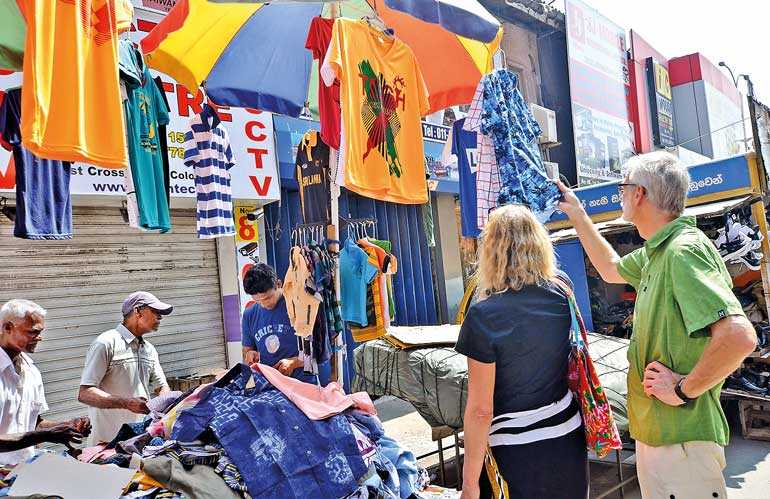Monday Feb 16, 2026
Monday Feb 16, 2026
Wednesday, 27 February 2019 01:13 - - {{hitsCtrl.values.hits}}

Suren is a young entrepreneur, a provider of computer support to small scale businesses. He runs his business operations from a two-roomed extension to a larger house, which the landlord, a retired government servant, occupies.
The entire staff of the enterprise consists of two technicians and himself. Having worked for several years at an established computer company as a technician, Suren is well acquainted with the technology, particularly the subject of software. As a senior technician he earned a salary adequate for daily expenses, but the income was insufficient to meet the aspirations of his growing family. Suren had some savings and decided to venture into the business himself, given his acknowledged computing skills, confident he could make a success of it.

By upbringing Suren has developed an inbuilt respect for systems, dutifully following every rule applicable to running a business.
Before commencing, he incorporated a company, the process, with related expenses, came to nearly Rs. 100,000.
He wanted a good location, and a proper lease agreement. The annex he rented had a separate assessment number. His landlord pointed out that if rented to a commercial concern (like Suren’s business) the municipal rates on that property would go up substantially. While the landlord would pay only Rs. 300 per quarter by way of rates for his large residential house, the tiny annex now defined “commercial” would cost him nearly Rs. 3,000, tenfold more!
Furthermore, due to recently introduced taxes, the tenant would have to deduct a substantial percentage of the rent as a tax to be remitted to the Inland Revenue Department. When negotiating, the landlord whose only additional source of income was the rent (he received a small pension from the government), insisted on adding these tax-based ‘costs’ to the rent. Although the resulting rent was more than what Suren had anticipated, the useful location, convenient to his customers, persuaded him.
Many forms, documents and payments
Excited about the new venture, Suren commissioned a colourful sign board for his shop. This smallish board is on the roof of the shop, well inside the property. Within a week he had a caller from the Local Government. There is an annual fee to the municipality on such displays.
“There are many forms to be filled and documents to produce. While making various payments, we also have to provide certification from officials like the Grama Sevaka and OIC of the area police station. These are never easy, requiring several visits and further authentication. We are in the dark as to the extent of our liabilities arising from taxes and other levies. Any day, a person claiming to be from the Municipality can walk in to demand this or that charge, as dues. There are even annual payments to be made to the Urban Development Authority.
“I wish the local authorities publish booklets describing their services and also listing the payments the businesses have to make to them. From what I have observed, they do not possess the capacity to bring out such a booklet. Whatever literature they use are old forms or old rules, reprinted. They simply cannot consolidate even the taxes that have been brought subsequently. Our public service is run-down, incapable of providing an efficient and transparent service.”
South Asian bureaucracy
South Asian bureaucracy is the butt of many jokes. The humour provided is best enjoyed when removed from the immediacy of its endless capacity for buffoonery. Even a businesslike what Suren is doing, with only two employees and a monthly turnover of perhaps less than $ 2,000 a month (app. Rs. 400,000), has to submit many papers.
In the two years since he started Suren reckons he had submitted enough forms to fill up a filing cabinet. Government forms are distinct; worded in an unfriendly and perfunctory manner; printed on low quality paper, they look like a cheap way of getting into a lot of trouble! The destiny of the threadbare folder carrying the forms handed in by Suren is anybody’s guess. If you were to look for the folder later, it will not be found easily. ‘The officer handling the matter is on leave,’ is the stock ‘official’ answer.
Two years later, the struggles of doing business in an unsupportive environment is beginning to take its toll on him. When an economy is stagnant, businesses are compelled to cut down on expenses, including their information technology budget. Many small businesses, which is Suren’s target area, are on the verge of winding up. He had nearly exhausted his savings, the income generated by the business was barely sufficient to meet his monthly expenses.
Suren showed me his water bill in disgust. His water usage for the month was just two units, for which he was billed Rs. 517, the calculation based on an inequitable billing system imposing a much higher rate on anything defined as a business. From the volume of the resource used (water) it was obvious Suren was using only the bare minimum, just for washing up purposes and perhaps for the occasional tea. In contrast, the landlord, defined as domestic, had used 13 units, but his bill was a mere Rs. 279. Had Suren the entrepreneur used 13 units like his land lord, he would have ended up paying something like Rs.3000! “It is not as if the State gives anything to us. Even the garbage collector has to be given money periodically, and mind you, we have near zero garbage, it is the landlord’s trash which is kept on the road. But since we are a business, the garbage collector thinks he is entitled to a quarterly ‘retainer’ from us. He is no different to the rest of the Government. The businessman is to be squeezed dry. The fact is, all these difficulties can be put on hold or made to disappear if I give them a bribe!”
Ease of doing business
Every time a politician opens his mouth he talks of improving the ease of doing business in the country. But the very State he represents does everything in its power to make it near impossible for business, particularly the small entrepreneur.
Creating endless regulatory hurdles, the system frustrates businesses, prodding them towards corruption. Money is taken away from businesses in the form of various taxes by the State, regardless of whether it is making profits or not.
Ease of doing business aside, Sri Lanka is becoming known for businessmen without business, administrators who cannot administer and politicians who do not know what they are saying.